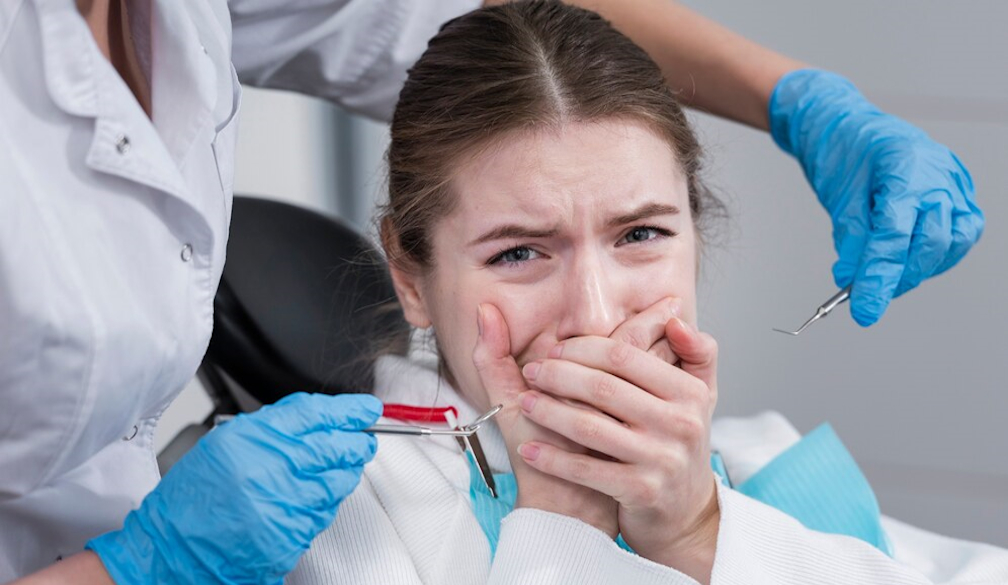When to Seek Help from an Emergency Dentist

Introduction
Dental emergencies can strike at any moment, causing pain, discomfort, and stress. Whether it's a sudden toothache or a knocked-out tooth, knowing when to contact a emergency dentist can save you from prolonged pain and potential complications. In this blog, we’ll explore common dental emergencies, when you should seek urgent care, and what to expect from a visit to an emergency dentist.
What Constitutes a Dental Emergency?
Not every dental issue requires immediate attention, but there are certain situations where seeking an emergency dentist is crucial to prevent further damage or relieve severe pain. Some of the most common dental emergencies include:
- Severe Tooth Pain
A sudden and intense toothache that doesn’t subside with over-the-counter pain relievers can be a sign of a more serious issue, such as an infection or a deep cavity. In such cases, it’s essential to see an emergency dentist to identify the cause and get the appropriate treatment.
- Knocked-Out Tooth
Accidents happen, and sometimes they can result in a knocked-out tooth. Quick action is key to saving the tooth. If this happens, try to place the tooth back into its socket without touching the root. If this isn’t possible, store it in a container of milk or saliva, and contact an emergency dentist immediately. The sooner you act, the higher the chances of saving the tooth.
- Broken or Chipped Teeth
While not all broken or chipped teeth require emergency care, if the break is large or causing significant pain, you should seek treatment as soon as possible. If left untreated, the damaged tooth may become more susceptible to infection.
- Abscessed Tooth
An abscess is a serious infection that occurs at the root of a tooth or between the gum and the tooth. It’s a severe condition that can cause swelling, pain, and fever, and if left untreated, the infection can spread to other parts of the body. An abscess always requires prompt attention from an emergency dentist to prevent serious health risks.
- Lost or Damaged Dental Work
If you lose a filling, crown, or other dental restoration, it’s important to see an emergency dentist to prevent further damage to the tooth. A broken or missing filling can leave your tooth exposed to bacteria, leading to infection and decay.
Why Quick Action is Important
In a dental emergency, time is of the essence. Delaying treatment can lead to more severe issues that are harder to treat. For instance, untreated tooth infections can spread to other areas of the body, causing more serious health problems. A knocked-out tooth that isn’t addressed promptly may not be able to be re-implanted, leading to the need for costly restorative procedures.
Seeing an emergency dentist as soon as possible can prevent further damage and relieve pain more effectively than waiting. Acting quickly may also save your tooth and avoid the need for more complex treatments in the future.
What to Expect at an Emergency Dental Visit
During your visit to an emergency dentist, the priority will be relieving your pain and stabilizing the situation. Here’s what you can typically expect:
- Initial Examination
The dentist will assess the damage, check for signs of infection, and determine the best course of treatment. X-rays may be taken to get a clearer view of the problem.
- Treatment Plan
Once the issue is identified, the dentist will discuss treatment options with you. This may involve filling a cavity, repairing a broken tooth, draining an abscess, or other necessary procedures to resolve the emergency.
- Pain Management
If you’re in pain, the dentist will priorities getting you comfortable. This may involve numbing the area or prescribing pain relief to help manage any discomfort.
- Follow-Up Care
Depending on the severity of the issue, you may require follow-up appointments to complete your treatment. The dentist will provide advice on how to care for your teeth after an emergency visit and what steps you can take to avoid future dental emergencies.
How to Avoid Dental Emergencies
While some dental emergencies are unavoidable, there are steps you can take to reduce the likelihood of needing an emergency dentist:
- Practice Good Oral Hygiene: Brushing and flossing regularly can help prevent cavities and infections.
- Use a Mouthguard: If you play contact sports or grind your teeth at night, using a mouthguard can protect your teeth from damage.
- Attend Regular Checkups: Routine dental visits can catch potential problems before they turn into emergencies.
Conclusion
A dental emergency can happen to anyone at any time. Knowing when to seek help from an emergency dentist can prevent complications and help you maintain good oral health. Whether it’s a severe toothache, a knocked-out tooth, or an abscess, it’s important to act quickly to ensure you get the necessary care.
